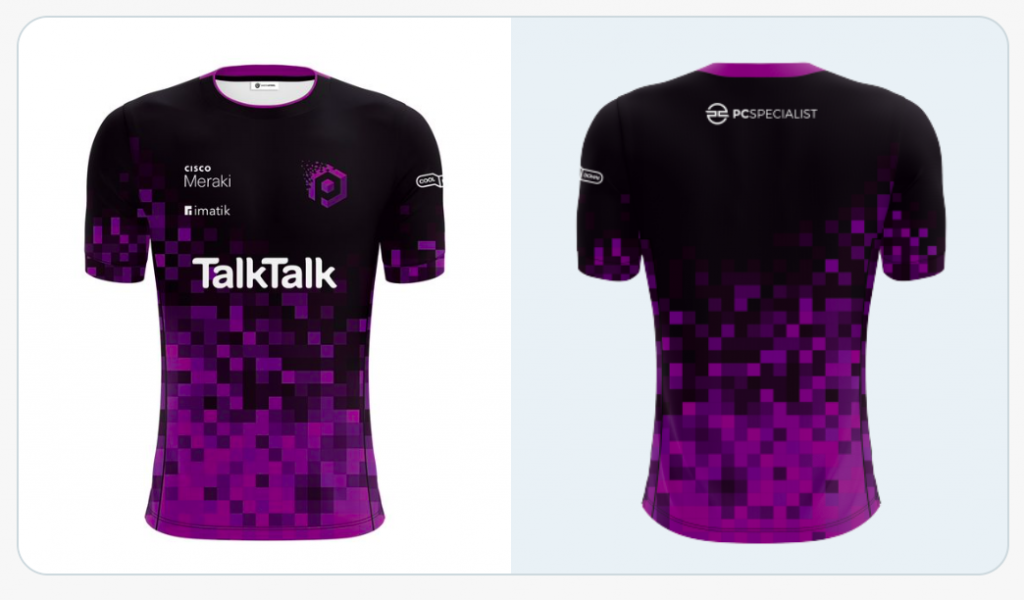
UK-based esports and video game bar Pixel Bar has announced three new sponsorships this month for its recently-launched esports initiative, Pixel Esports.
Internet service provider TalkTalk, IT technology brands Cisco Meraki & imatik, and esports viewing party platform Cooldown have been named Pixel’s first commercial partners.
Pixel Bar announced its esports division, Pixel Esports, in April with the signing of the University of Salford’s collegiate Rocket League team. It’s part of an effort by the venue to build out a fanbase and local community in its two locations — Manchester and Leeds.
In order to stand out in a growing and increasingly crowded amateur market, Pixel Bar is taking a resolutely local and grassroots approach to its esports initiative, an approach it says is integral to what it’s trying to achieve.
“As city centre esports-centric venues, we’re the first step into esports that many people in Leeds and Manchester take,” Craig Ryan, Director and Co-owner of Pixel Bar, told Esports Insider. “The bigger the grassroots scene is, the more people come into Pixel to take part in events, so it’s always going to be our focus.”
A laser-focus on the local comes with both benefits and disadvantages. On the one hand, working exclusively with local players puts them at an immediate disadvantage to others orgs, Ryan said. Sticking to the more traditional sports model of local in-venue training and high-level coaching means limiting the talent pool considerably.
But commercially, it comes with huge upsides. “It’s a huge opportunity for us,” Ryan claimed. “What Pixel Bar can offer is a physical location for brands to activate potential customers, and a guaranteed audience of gamers in the age range of 18-35. We might not have the reach of the big teams out there but the value-per-person is so much higher.

“Major teams are starting to recognise the strength of having a physical presence in major cities for growing and retaining their fan base [after] star players leave,” Ryan continued. “If teams want to hold onto their fans’ loyalty long term they need to start engaging with more than just the lucky few who can travel to LAN events.”
Those commercial upsides are apparently being felt, with major brands like TalkTalk and Cisco proving the outsized reach small local teams can have — though it’s not without challenges. Tying yourself to a city makes it even harder to engage fans outside of that locality, especially when traditional organisations can provide better online fan experiences.
Additionally, in an era dominated by online metrics such as Twitter and Instagram followers, a physical-first organisation like Pixel can struggle to make its metrics speak, Ryan admitted.
Nonetheless, Pixel has managed to secure high-profile sponsors that it says genuinely add value to its bars. TalkTalk will provide Pixel’s venues with dedicated leased line internet for its players (and also sponsor their jerseys).
Meanwhile, Cisco Meraki is to ‘level up’ the bars’ internet infrastructure, reducing ping and providing a stable connection, while Cooldown will bring customers together for esports events.
Ryan said Pixel plans to make use of the sponsorships to produce better content, which it’ll then use to attract new sponsors. That will allow it to expand into new titles — which could include Smash, Tekken 7 and League of Legends — though a specific roadmap is unclear following the financial setback of a break-in to its Manchester venue in May.
“For those brands, they get to develop their esports pedigree by supporting a grassroots project. We certainly don’t have near the level of a deal they’ll be doing with the Riots of this world.
“[But] for Pixel financially, and for the brands in terms of exposure, it gives us the freedom to try out ideas and work together on a blank canvas to create things that are actually good for UK esports.”



